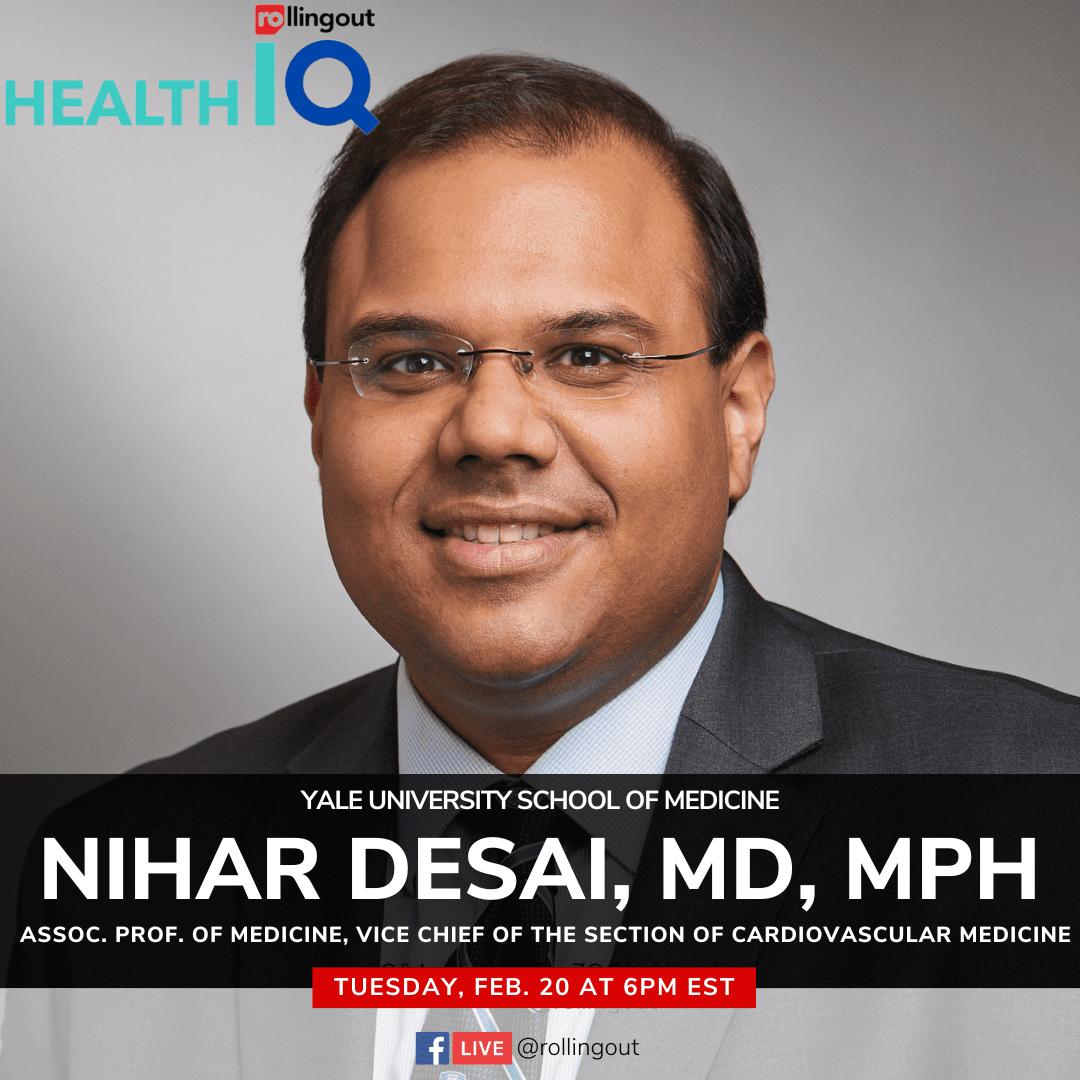February marks Heart Health Month, a time dedicated to raising awareness about cardiovascular well-being. During this episode of Health IQ, Dr. Nihar Desai from Yale School of Medicine, presents an insightful conversation with Munson Steed, CEO and publisher, rolling out. Together, they navigate through important aspects of heart health, providing an informative discussion for all to better understand heart health and discover practical steps for a healthier lifestyle.
Check out the important discussion on hearth health below.
Munson Steed: Welcome to Health IQ, where we connect with premier authorities to provide insights on today’s health matters. Today, I’m joined by Dr. Nihar Desai from Yale School of Medicine.
Let’s dive into the crucial topic of heart health. Dr. Desai, what are your thoughts on creating awareness?
Nihar Desai, MD, MPH: Absolutely, Munson. I appreciate being here. Increasing awareness about heart health, considering factors like diet and lifestyle, is essential. I encourage everyone to be proactive, especially regarding cholesterol levels.
Steed: Indeed, awareness is key. The journey starts with setting health goals. Dr. Desai, what’s your perspective on creating urgency around this health matter?
Dr. Desai: Individuals, even at a younger age, should address elevated cholesterol urgently. It’s a significant risk factor for heart-related issues. Providers must actively listen, conduct thorough clinical workups, and take necessary actions promptly.
Steed: Bridging the gap between family history and personal health is crucial. How can individuals recognize this impact?
Dr. Desai: Individuals need to connect the dots between family health history and personal well-being. Providers should engage in open discussions, be attentive, and take necessary actions promptly.
Steed: Recognizing the impact of family health history on personal well-being is crucial. How can individuals take diagnoses seriously?
Dr. Desai: Diagnoses, especially with a family history of heart disease, should prompt individuals to engage with healthcare providers promptly. This proactive approach is vital for a healthier life.
Steed: We’ve covered the significance of awareness and timely action in heart health. Can you shed light on specific lifestyle changes individuals can incorporate to promote heart well-being?
Dr. Desai: Certainly, Munson. Lifestyle plays a crucial role. Simple changes like adopting a balanced diet, regular exercise, and stress management contribute significantly. Prioritizing these aspects can lead to improved heart health and overall well-being. It’s about making sustainable choices that positively impact our cardiovascular system.
Steed: Wise advice, Dr. Desai. Small, consistent changes do matter. Your insights are valuable. The dialogue today emphasizes the significance of awareness and timely action in promoting heart health. Thank you for your time today. We appreciate you joining us for another episode of rolling out’s Health IQ.














